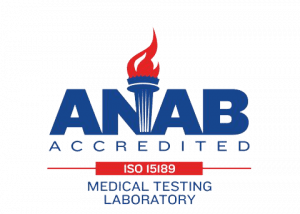
What does non-invasive mean?
Prenatal testing has brought us healthier and safer birth since the 1950s, and with each year, the medical profession are able to tell us more and more from these tests. Birth defects and genetic diseases are discovered and cured before the child is born, or immediately afterward. Starting with the ultrasound, more commonly referred to as the sonogram, today, there are many more tests possible, both invasive and non-invasive prenatal testing.
Non-invasive means the mother is only subjected to a blood test by way of a needle and syringe. The difference between non-invasive prenatal testing vs invasive testing, is explained as follows:
Non-invasive prenatal testing is done by lab technician taking a blood draw from the mother during the first trimester with a needle through the arm. There cfDNA is viewed for detection of common aneuploidies. How to do a non-invasive prenatal test
Medical professionals that are trained how to do a non-invasive prenatal test method will use needles and probes inserted into the mother’s uterus. This process is referred to as an amniocentesis and is typically done between the 14th and 20th week of gestation. A chorionic villus sampling is sometimes performed between the 9.5 and 12.5 week gestation. The results are returned within eight to fourteen days.
When can you do noninvasive prenatal test?
Non-invasive prenatal testing is a screening tool that allows the doctor to assess any genetic risk of a chromosomal abnormalities in the fetus. Those abnormalities include Down syndrome and others. Typically, the test is performed at the 9 week stage of pregnancy and is one of the conclusive non-invasive prenatal tests available today.
How long does it take to get noninvasive prenatal testing results?
A non-invasive prenatal testing is done by a lab technician or nurse taking a simple blood draw from the mother. There is absolutely no risks to the mother or fetus, this isn’t any different than any other blood draws. The blood is sent to a lab where it is analyzed, and the results are returned to the doctor’s office within eight to fourteen days.
How accurate is the noninvasive prenatal test?
Non-invasive prenatal testing is typically done at the 9 week mark of a pregnancy, no later than 12 weeks. This elective test is done to check for any chromosomal disorders caused by extra or missing X and Y chromosomes. Among the disorders that can be discovered via non-invasive prenatal testing are:
- Down syndrome
- Edwards syndrome
- Patau syndrome
The non-invasive prenatal testing is done by looking at small pieces of cell-free DNA, referred to as cfDNA, from the placenta that is present in the expecting mother’s blood. The cfDNA is created when these cells die and are broke down and release some DNA into the mother’s bloodstream.
This non-invasive prenatal testing is only a screening test, meaning that diagnosis of a genetic condition can be determined with certainty. It is only a way for the doctor to predict if there is a possible genetic condition risk. A non-invasive prenatal testing is also used to determine the unborn child’s sex, sooner than the typical ultrasound will show the gender.
Can NIPT give false negative?
Noninvasive prenatal testing accuracy is said to be as >99% accurate. Maternal and placental mosaicism can contribute to results of this screening to have a false-positive. There are technical considerations that may lead to an incorrect reading, a reminder that medical professionals involved in non-invasive prenatal testing remind patients that this only a screening and should not be the only testing used to determine any possible outcome. More detailed and intense training should be performed and analyzed.

Is the NIPT test ever wrong for gender?
Diagnostic accuracy of non-invasive prenatal testing gender determination is extremely high. With a sensitivity of 98.9% and the specificity of the test at 99.6%, the predictive values of positive and negative are respectively high, 99.6% and 98.8% in comparison. The further along the mother gets in her pregnancy, the more accurate non-invasive prenatal testing becomes.
Both invasive and non-invasive prenatal testing have benefits and shortcomings. While invasive testing is more reliable than non-invasive prenatal testing, it also has more chance of risks. It isn’t diagnostic but it is within 99% of accuracy in identifying abnormalities a fetus may have and it does that without putting the mother or unborn child at risk, whereas the invasive testing can.
Choosing the non-invasive prenatal testing form reduces any risk of the mother miscarrying. It also reduces the risk of the amniotic sac being punctured or the placenta being damaged, both putting the mother and unborn child at risk.
With all this said though, it is not a recommendation to go against a doctor’s recommendations. If there are concerns about having an invasive prenatal testing done, getting a second opinion may be in order. Call (800) 219-4362 today for your prenatal testing needs.


















